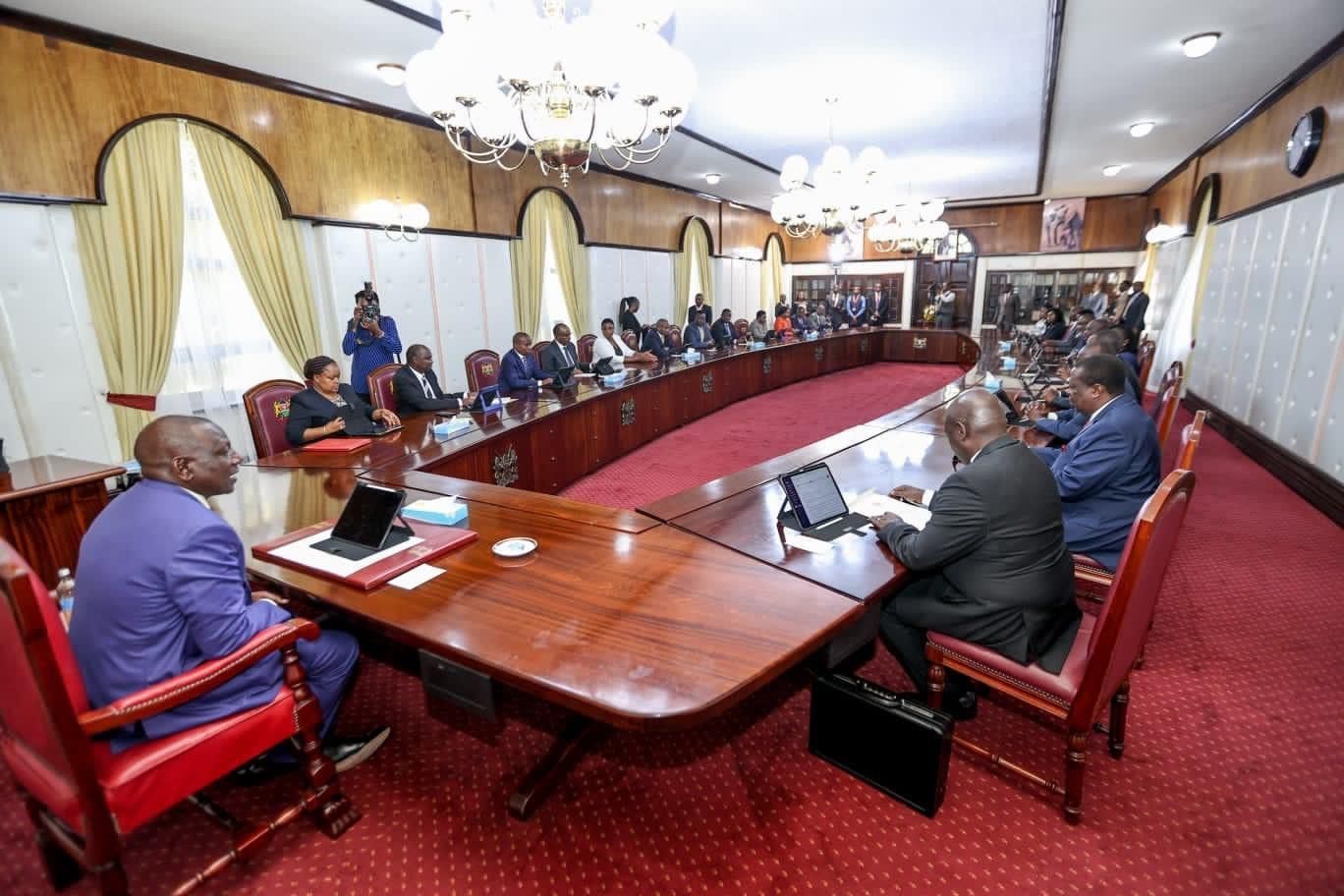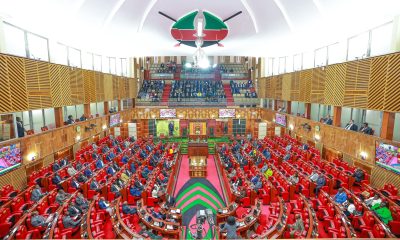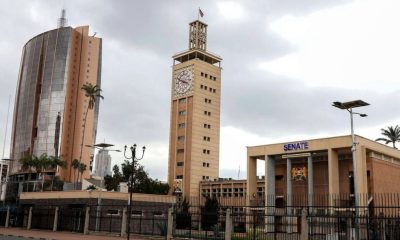Economy
Cabinet Directs Employers to Apply Employee Tax Reliefs on PAYE to Ease KRA Burden

Kenyans have long endured the burden of following up with the Kenya Revenue Authority (KRA) to claim refunds on tax reliefs that should have been applied upfront. But this is set to change.
The Cabinet has now ordered all employers to calculate Employee Tax Reliefs and exemptions automatically when computing Pay As You Earn (PAYE).
This directive, approved under the Finance Bill 2025, promises smoother tax processes, fewer refund delays, and less pressure on KRA systems.
For millions of workers, this means more money in their pockets and less bureaucracy. For KRA, it means fewer refund claims and less fraud.
Why the Cabinet’s Order on Employee Tax Reliefs is a Game Changer
The Cabinet’s directive is part of broader tax reforms aimed at enhancing efficiency and fairness in Kenya’s tax system. For years, employers have been neglecting to apply tax reliefs such as personal relief, insurance relief, and mortgage interest deductions when calculating PAYE.
This left employees with no option but to file tax returns to claim refunds—often waiting for months or even years.
Under the new directive, employers must now factor in all eligible employee tax reliefs and exemptions upfront in payroll systems.
This will significantly reduce the number of refund applications submitted to KRA. The goal is to eliminate unnecessary queues, delays, and paperwork.
“This move is part of our commitment to building an inclusive economy under the Bottom-Up Economic Transformation Agenda (BETA),” reads the Cabinet dispatch.
It further highlights that streamlining these deductions will also help prevent abuse of the refund system. In past years, unscrupulous individuals exploited refund claims to siphon public funds through inflated submissions.
How Employees Benefit from Automatic Tax Reliefs
For employees, this change is a major win. By automatically applying tax reliefs at the source, workers will take home higher net salaries without waiting for year-end adjustments or refunds.
For instance, if you pay for insurance premiums or have a student loan, the corresponding tax reliefs will be calculated directly by your employer. This means immediate financial relief and better monthly budgeting.
Moreover, individuals running small businesses will also gain. They will now be allowed to deduct the full cost of work tools and equipment in the year of purchase. This helps eliminate delays in accessing tax relief and improves business cash flow.
The change is also expected to reduce errors in tax filings and simplify compliance for low-income earners who may not have the time or knowledge to file returns annually.
Streamlining the System to Help KRA and the Economy
Beyond individual benefits, the Cabinet’s order serves a larger economic purpose. KRA has been under pressure to meet revenue targets while handling a flood of refund applications—many of which are the result of employers failing to apply basic reliefs.
By pushing the responsibility back to employers, the government aims to relieve KRA and allow it to focus on core revenue collection functions.
Also, this move is expected to curb fraudulent refund claims, which have cost the country millions in lost funds.
To support the transition, the Finance Bill 2025 includes amendments to key tax laws: the Income Tax Act, VAT Act, Excise Duty Act, and Tax Procedures Act. These changes will close legal gaps, speed up revenue collection, and reduce the volume of tax disputes.
Notably, this reform aligns with conditions set by the International Monetary Fund (IMF) and the World Bank. Both institutions have urged Kenya to tighten tax administration and seal leakages before receiving further financial support.
This includes launching an electronic procurement system and centralizing government finances to reduce waste.
Final Thoughts
The Cabinet’s order to employers to apply Employee Tax Reliefs and exemptions automatically under the PAYE system marks a big step toward a fairer and more efficient tax system.
It empowers employees, supports small businesses, and eases the burden on KRA. As the Finance Bill 2025 rolls out, both workers and employers will need to adjust, but the long-term gains—in transparency, savings, and trust—make this a welcome change for all.
Kenya Insights allows guest blogging, if you want to be published on Kenya’s most authoritative and accurate blog, have an expose, news TIPS, story angles, human interest stories, drop us an email on [email protected] or via Telegram
-

 Grapevine2 weeks ago
Grapevine2 weeks agoRussian Man’s Secret Sex Recordings Ignite Fury as Questions Mount Over Consent and Easy Pick-Ups in Nairobi
-

 News1 week ago
News1 week agoTHE FIRM IN THE DOCK: How Kaplan and Stratton Became the Most Scrutinised Law Firm in Kenya
-

 Investigations1 week ago
Investigations1 week agoMulti-Million Dollar Fraud: Three Kenyans Face US Extradition in Massive Cybercrime Conspiracy
-

 Economy1 week ago
Economy1 week agoIran Demands Arrest, Prosecution Of Kenya’s Cup of Joe Director Director Over Sh2.6 Billion Tea Fraud
-

 Business1 week ago
Business1 week agoA Farm in Kenya’s Rift Valley Ignites a National Reckoning With Israeli Investment
-

 Africa2 weeks ago
Africa2 weeks agoFBI Investigates Congresswoman Ilhan Omar’s Husband’s Sh3.8 Billion Businesses in Kenya, Somalia and Dubai
-

 Grapevine4 days ago
Grapevine4 days agoA UN Director Based in Nairobi Was Deep in an Intimate Friendship With Epstein — He Even Sent Her a Sex Toy
-

 Politics2 weeks ago
Politics2 weeks agoSifuna, Babu Owino Are Uhuru’s Project, Orengo Is Opportunist, Inconsequential in Kenyan Politics, Miguna Says





























